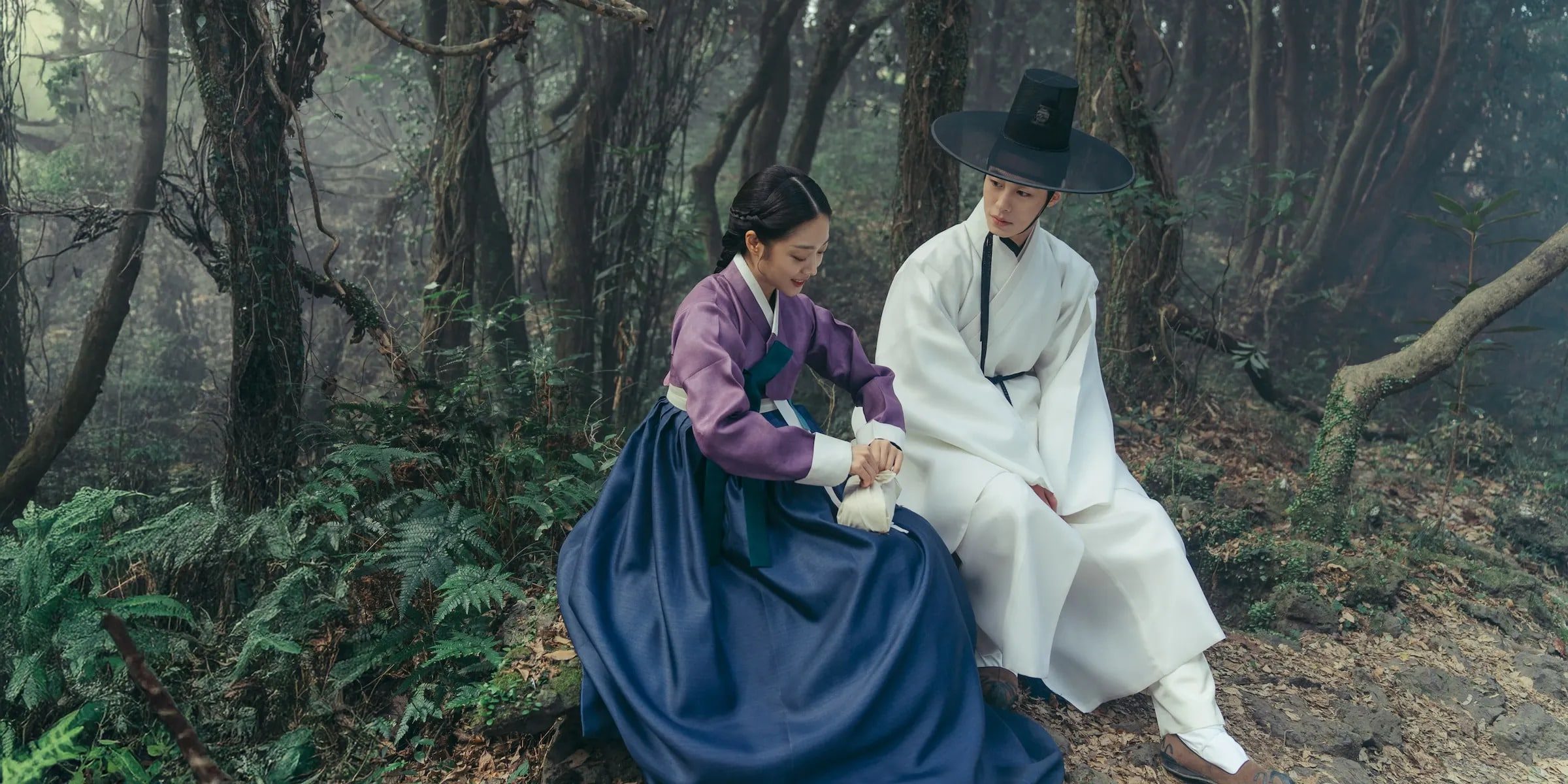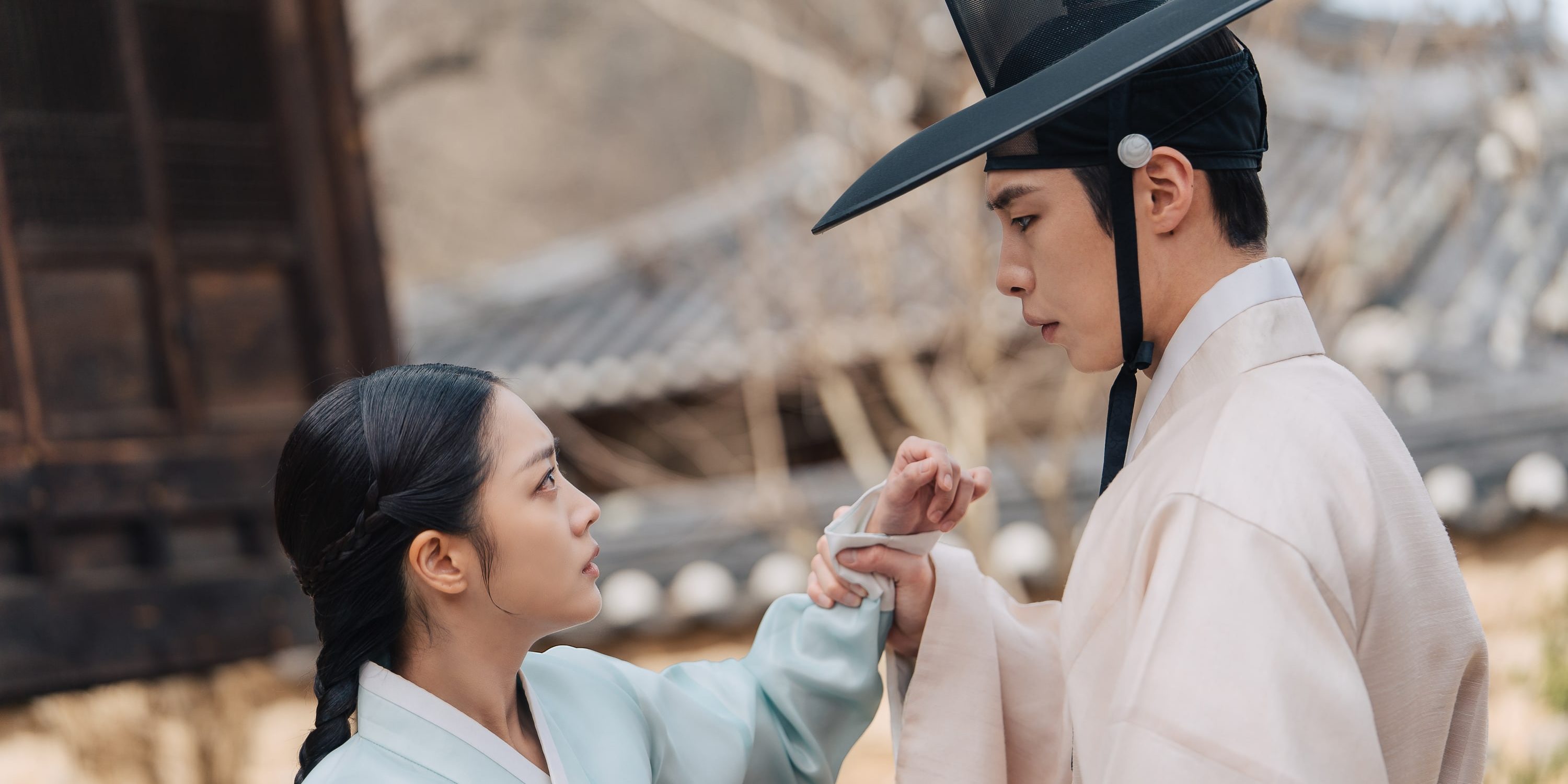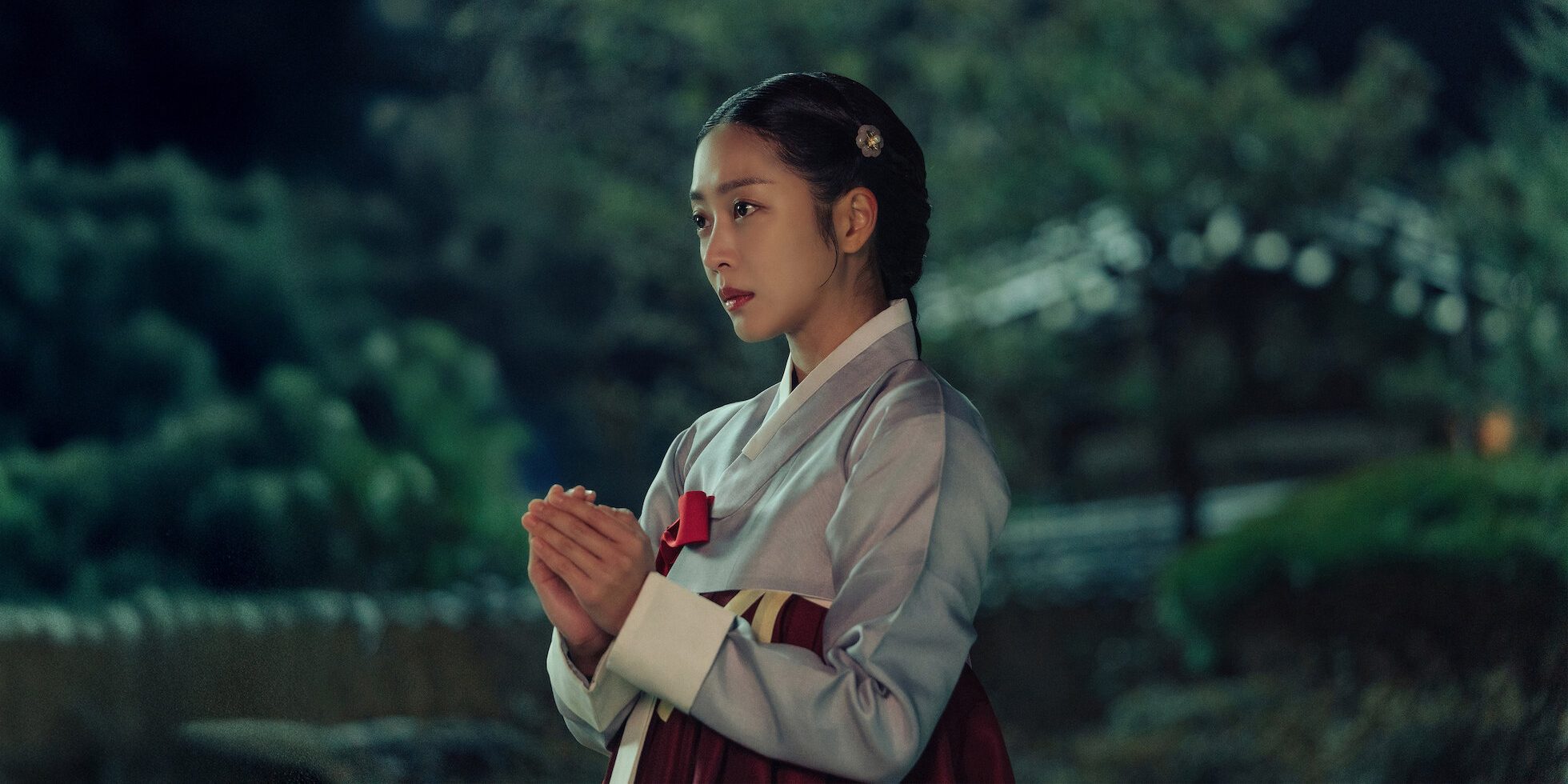Originally titled ‘Tangeum,’ Netflix’s ‘Dear Hongrang’ tells the story of Hong-Rang, the son of a wealthy family in Joseon, whose disappearance at the age of eight throws the entire family into ruin. Desperate to find him, his half-sister, Jae-Yi, creates a spy network to search for any information on his whereabouts, while his mother, Min Yeon-Ui, loses herself in a fog of depression. Twelve years after the vanishing, an enigmatic man shows up at the family’s doorstep, claiming to be Hong-rang. While the news stirs the family into action, something about the returned Hong-Rang seems off, which is picked up by Jae-Yi. Her hunch proves correct as it becomes evident that a man posing as her half-brother could be harboring dangerous intentions. Created by Kim Hong-Sun and Kim Jin-Ah, the period drama series delves into a historical tale brimming with conspiracies, betrayals, and romance.
Dear Hongrang is an Adaptation of a Historical Thriller Novel
Although set during the Joseon era, ‘Dear Hongrang’ is primarily a fictional story based on the Korean-language novel ‘Tangeum: Swallowing Gold’ written by author Jang Da Hye. The script for the Netflix adaptation is penned by Kim Jin-Ah, taking cues from the source material when crafting the intricate emotional arcs behind every character in the story. The book offers a complex yet compelling narrative through a haunting exploration of loss, longing, guilt, secrets, and tragedy. In both the novel and the show, everything kicks into gear following the disappeared Hong-Rang’s return to the Min family after twelve years of being missing. His return heralds a shift in the tide, with people within the family rejoicing and cursing his return with the same breath. Ultimately, politics and personal agendas take precedence, showcasing the ruthless nature of the times.

Both the show and book harness the secrecy and hidden agendas to great effect, leaving the audience wondering whether it is best to believe one side or the other. While political conquests and thriller aspects play a bigger role in the live-action format, the source material is packed with enough material that any topic can be explored in great detail. Novelist Jong Da Hye even stated that she had meticulously chiseled out the various emotional strands connecting the characters, including their comprehensive arcs before the book ever hit the shelf. As such, all the relevant elements of the narrative are deeply fleshed out and attest to an underlying reality of the situation. Despite the show taking a slightly heightened approach to the material, it remains closely linked to what transpires on the page.
Dear Hongrang Revolves Around the Pain of Childhood Trauma and Loss
The world depicted in ‘Dear Hongrang’ is not the only complicated thing. The returned Hong-Rang himself is no longer the person he used to be before his disappearance. For Jae-Yi, Hong-Rang was once her only solace while growing up, shunned by everyone in the house. However, now that he is back, she can no longer connect with him. It breeds uncertainty in their relationship, which is the catalyst for the larger narrative at play. In an interview with Time Magazine, Jo Bo-Ah, who plays Jae-Yi, explained her character’s inner state of mind by stating, “She (Jae-Yi) grew up being completely neglected and oppressed, and Hong-rang was the only person within her family or around her that treated her in a humane way and also with love. And so, after he goes missing, it really becomes her sole goal to find that hope (for living and) that brother once again.”

At the end of the day, the entire narrative boils down to traumatic memories rooted in every character’s point of view, something so damaging that they have spent their whole lives seeking an answer or a purpose behind the madness. These negative avenues of exploration often lead to various positive outcomes, such as Jae-Yi’s affection for Hong-Rang and vice versa. Lee Jae-Wook, who plays Hong-Rang, said, “I think that the love that is felt between these two characters, it is something that should not be looked upon lightly. So I hope that’s something that the audience can truly feel.” The deeper emotional truth is a significant part of understanding the underlying themes of ‘Dear Hongrang.’ It tries to capture the complex details of history, power, and conflict through an individual tale of regret, love, and loss, making it all the more resonant as a story.
Read More: Is Netflix’s Nonnas Based on a True Story?


